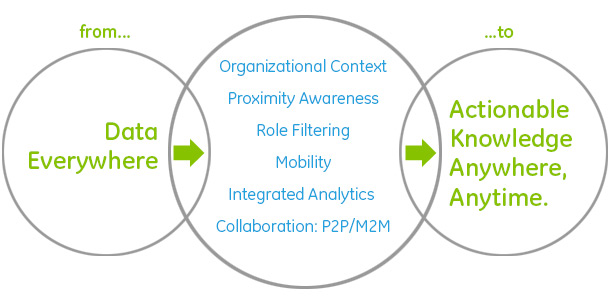Operational Intelligence (OI) falls under the category of real time dynamics, business analytics which assists in delivering understandable visibility and insight into data, streaming business operations and events.
Operational Intelligence solutions help in solving queries about streaming data feeds and also event data which helps in delivering real time analytical results. It also helps organizations to take decisions without wasting time and acting upon precisely on these analytical insights through automated or manual actions.
Operational intelligence: Utilizing data to develop business operations
The chief aim of Operational Intelligence is to keep track of business activities together with identifying and detecting conditions relating to coercion, opportunities, and , inefficiencies. They come up with real time and quick operational answers without wasting a lot of time. It also is known as an event-centric approach to deliver across information, which helps empowering people to come up with improved decisions.
Moreover, these metrics also help in acting as starting points to proceed into further analysis (digging deep into details, executing root cause scrutiny, tying variances to specific transactions and set of business activities.
Systematic and refined OI systems also help in associating metadata with metrics, channels, process, steps and many more activities. It gets extremely quick and easy to get hold of related details. For example, retrieving contact details of an individual, who manages the application, which executes the step in the business transaction which had takes around 70% more time than the norm!
Feature of Operational Intelligence:
Operational intelligence solutions of different kinds might utilize different technologies and might be implemented in a different manner. The following section lists some of the commonly available features of OI:
- Real-time monitoring
- Industry-specific dashboards
- Root cause analysis
- Correlation of events
- Real-time dashboards for diverse user roles
- Real-time situation detection
- Trending analysis and time series
- Multimedia dimensional analysis
Big Data Analytics:
Operational Intelligence can be very conveniently used to address challenges which come across with Big Data. It helps to constantly supervise and evaluate variety of high velocity, high end Big Data sources and is performed in memory. OI solutions and platforms then present in real time, the incremental calculations and modifications to the end user.
Technological Components:
Operational intelligence solutions assist in sharing several features which is why many of them also share technological components.
Listed below is a list of the frequently found technology components along with the features they enable:
- Complex event processing (CEP) – Sophisticated and nonstop analysis of real-time and information.
- Business activity monitoring (BAM): Customization of dashboard and personalization.
- Dimensional Database
- Multi-channel notification with regular publishing
- Root cause analysis
- The Metadata Framework, which helps to link and model events to the respective resources
Operational intelligence is a new market segment when compared to the highly developed business process management and business intelligence segments. However, it is significant as it helps in placing comprehensive information at your fingertip, enabling you to come forth with better decisions, which brings about overall maximum impact. From both the historical data silos and streaming feeds, it greatly assists in correlating a flotilla of events by which enterprises can actually gain real time visibility through sophisticated dashboard techniques. It provides real time insight as to how the company is performing, health and status which enables the company to take abrupt action based on business processes and policies.
Operational intelligence applies the advantages of real-time alerts, analytics and actions to a wide range of cases inside and beyond the enterprise.
Operational intelligence and Business Intelligence:
Operational intelligence is many times, linked to Business Intelligence (BI) also known as real time business intelligence, as both of them assist in compiling and adding meaning to the plethora of data.
OI is chiefly, activity-centric while on the other hand, BI caters to data centric needs. In most of the technologies, both of them could be sub-optimally coerced to perform the task of each other. OI is ‘real time’ whereas BI is ‘on demand’ which customarily is after the fact and report based approaches.
Measures for IT Operational Intelligence
- Does not utilize resources and will never perturb the systems under monitor.
- In the IT environment, dramatically regulates changes including updates of applications, virtual and physical infrastructure changes.
- Views overall network, application servers, databases, web servers and storage systems as one fundamental delivery system.
- Scales to sustain the most challenging enterprise environments and conditions, which also adds applications which are geographically distributed, covering manifold datacenters and innumerable branch offices.
- Offers value to a flotilla of IT Operations personnel and not only catering to specialist teams.
- In the production area, it covers all applications, and not only the few that the company can afford to monitor. It also covers web servers, databases, and heterogeneous infrastructure encompassing storage, DNS and directory services from then end of diverse vendors.
Operational Intelligence provides a company with unmatched short-term prospects to reach out to customers as data is generated, in real time. We cannot forget to mention that the promising Internet of Things is principally fueling it together with e-commerce with the mortar and brick retail industry.



